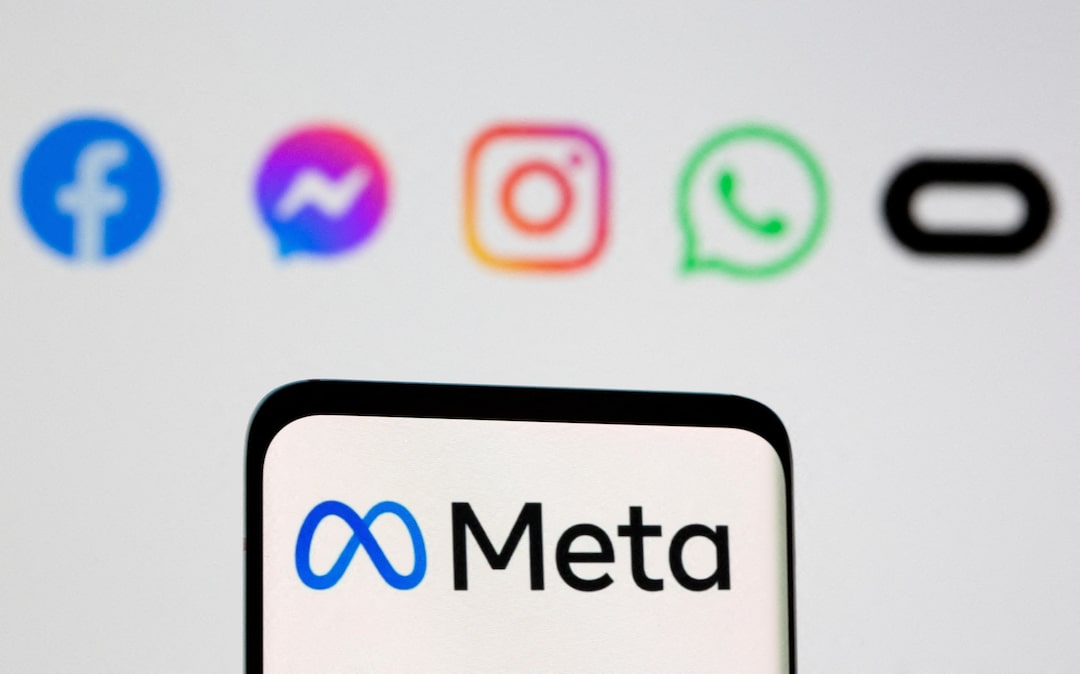Meta Faces FTC Defense In Monopoly Case

Table of Contents
The FTC's Case Against Meta: Allegations of Anticompetitive Behavior
The FTC's central argument in the Meta FTC Monopoly Case rests on accusations of anticompetitive behavior, primarily focusing on Meta's acquisitions and subsequent actions.
Acquisition of Instagram and WhatsApp: Stifling Potential Rivals
The FTC claims Meta's acquisitions of Instagram in 2012 and WhatsApp in 2014 were not merely shrewd business moves but deliberate acts to eliminate potential rivals and solidify Meta's dominance in the social networking market.
- Timeline: Instagram's acquisition preceded WhatsApp's, showcasing a pattern of acquiring burgeoning competitors before they could pose a significant threat.
- Market Share and Competitive Harm: The FTC argues that these acquisitions significantly increased Meta's already substantial market share, limiting consumer choice and stifling innovation from potential competitors. The loss of these independent platforms, they claim, resulted in a less dynamic and innovative social media landscape.
- Impact on Smaller Platforms: The FTC suggests that the acquisitions created a chilling effect on other smaller social media platforms, hindering their growth and preventing the emergence of viable alternatives to Meta's dominant platforms like Facebook, Instagram, and WhatsApp.
Allegations of Stifling Competition Through Strategic Practices
Beyond acquisitions, the FTC alleges that Meta actively worked to stifle competition through various tactics.
- Preferential Treatment of Meta Products: The FTC claims Meta prioritized its own products within its ecosystem, disadvantaging competitors by limiting their reach and visibility. This alleged behavior could include preferential placement in search results or algorithmic manipulation.
- Impact on Innovation: By eliminating potential competitors and engaging in anti-competitive practices, the FTC argues Meta stifled innovation and prevented the development of superior alternatives, harming consumers in the long run.
- Similar Cases: This lawsuit echoes previous antitrust cases against other tech giants, highlighting a broader concern about the potential for monopolistic behavior in the tech industry. These precedents inform the FTC's strategy and strengthen their arguments in the Meta FTC Monopoly Case.
Meta's Defense Strategy: Countering the FTC's Claims
Meta's defense strategy in the Meta FTC Monopoly Case centers on rebutting the FTC's allegations and presenting a counter-narrative.
Arguments for Pro-Competitive Acquisitions
Meta is likely to argue that the acquisitions of Instagram and WhatsApp were pro-competitive, benefiting consumers through increased innovation and choice.
- Increased User Choice and Features: Meta's defense might highlight the expanded features and options available to users due to the integration of Instagram and WhatsApp into its ecosystem. They may argue this increased choice is a benefit for consumers.
- Improved User Experience: Meta could present evidence suggesting the acquisitions led to improvements in user experience, such as seamless integration between platforms and enhanced functionality.
- Competitive Landscape: Meta's defense will likely argue that the market was already competitive at the time of the acquisitions, and that the acquisitions did not significantly reduce competition. They may also point to the continued emergence of other social media platforms as evidence of a competitive market.
Rebuttal of Anti-Competitive Practices
Meta will directly refute the FTC's accusations of anti-competitive practices.
- Counterarguments: Meta will likely provide counterarguments to each specific allegation, providing evidence to support its claims. This might include data on market share, user behavior, and competitive activity.
- Evidence and Data: Meta will likely present data and evidence to demonstrate that its actions were not anti-competitive. This might include market research, internal documents, and expert testimony.
- Perspective on Market Competition: Meta will aim to portray itself as operating within a dynamic and competitive market, emphasizing the existence of various social media platforms and communication tools.
Potential Outcomes and Implications of the Meta FTC Monopoly Case
The Meta FTC Monopoly Case has far-reaching implications for the tech industry and Meta itself.
Impact on the Tech Industry: Setting a Precedent
A ruling against Meta could set a critical precedent for future antitrust cases involving tech giants, altering the landscape of mergers and acquisitions.
- Future Mergers and Acquisitions: A negative ruling could discourage future mergers and acquisitions in the tech sector, potentially leading to increased scrutiny and stricter regulatory frameworks.
- Regulatory Frameworks: The outcome could influence the development of new regulatory frameworks and enforcement actions specifically targeting the behavior of large tech companies.
- Ripple Effects on Innovation and Competition: The case's resolution will likely have ripple effects on innovation and competition within the tech industry, potentially influencing investment strategies and corporate decision-making.
Consequences for Meta: Financial Penalties and Structural Changes
Depending on the outcome, Meta faces substantial financial penalties, structural changes, or behavioral remedies.
- Fines and Divestments: Potential consequences could include hefty fines, forced divestment of acquired companies (like Instagram or WhatsApp), or mandated changes to Meta's business practices.
- Impact on Stock Price and Valuation: The outcome will significantly impact Meta's stock price and overall market valuation, potentially leading to significant financial losses.
- Changes to Business Practices: Regardless of the final ruling, Meta might be forced to adopt new business practices to ensure future compliance with antitrust regulations.
Conclusion
The Meta FTC Monopoly Case is a landmark legal battle with far-reaching implications for the future of the tech industry. The FTC's allegations of anti-competitive behavior, alongside Meta's defense, highlight the complexities of regulating powerful tech companies. The outcome of this case will profoundly impact competition, innovation, and the regulatory landscape for social media and beyond. Stay informed about the developments in this crucial Meta FTC Monopoly Case to understand its long-term effects. Follow our updates for ongoing coverage of this pivotal Meta FTC Monopoly Case.

Featured Posts
-
 Kypros Oyggaria Enisxysi Dimeron Sxeseon Kypriako Kai I Ee Sto Epikentro Ton Synomilion
May 19, 2025
Kypros Oyggaria Enisxysi Dimeron Sxeseon Kypriako Kai I Ee Sto Epikentro Ton Synomilion
May 19, 2025 -
 Are The Mets In A Mini Slump Lack Of Big Hits A Concern
May 19, 2025
Are The Mets In A Mini Slump Lack Of Big Hits A Concern
May 19, 2025 -
 Mlb Rumors Luis Robert Jr Trade Speculation Heats Up Pirates Poised To Profit Arenado Contract Stalemate Continues
May 19, 2025
Mlb Rumors Luis Robert Jr Trade Speculation Heats Up Pirates Poised To Profit Arenado Contract Stalemate Continues
May 19, 2025 -
 5 0 Win For Norway Haaland Stars In World Cup Qualifying Campaign Opener
May 19, 2025
5 0 Win For Norway Haaland Stars In World Cup Qualifying Campaign Opener
May 19, 2025 -
 Jyoti Malhotra You Tuber Accused Of Espionage After Pakistan Visit
May 19, 2025
Jyoti Malhotra You Tuber Accused Of Espionage After Pakistan Visit
May 19, 2025
